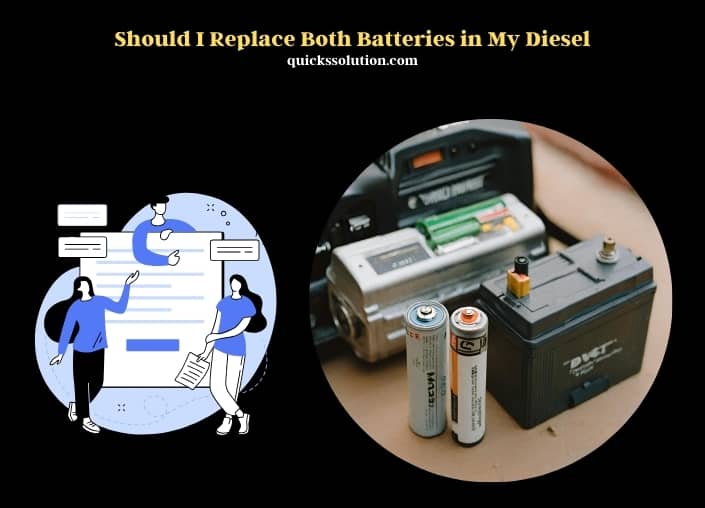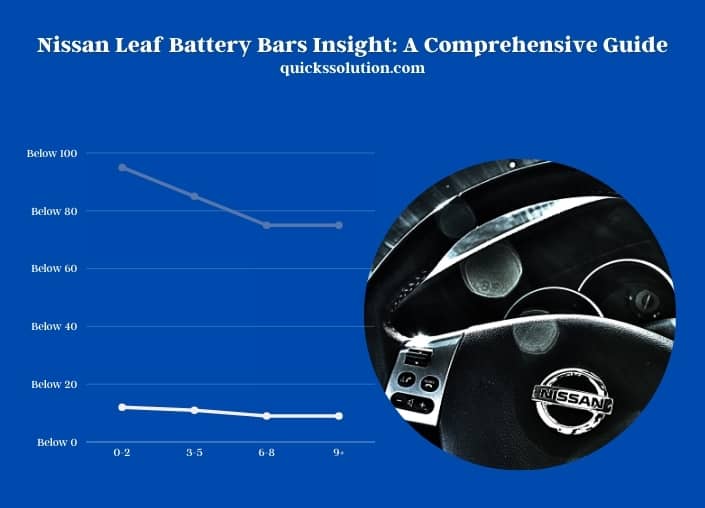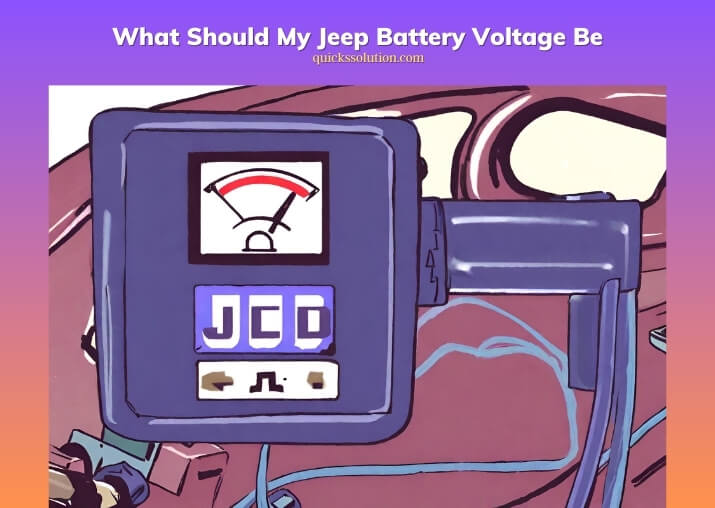Published on: September 27, 2023
Written by Amlan Roy / Fact-checked by Hashim Manna
Can I use a different group size battery in my car? The answer is, it’s possible, but not advisable.
Switching to a different battery size can lead to various issues. For instance, if you install a wrong battery, your car might exhibit certain symptoms like erratic electrical performance or frequent stalling. Tools like a car battery compatibility checker can be beneficial in ensuring you choose the right battery for your vehicle. Opting for a higher amp-hour (Ah) battery might seem like a good idea for enhanced performance, but it’s essential to ensure that the vehicle’s system can handle the increased capacity. On the other hand, using a smaller battery can strain the system, potentially affecting the car’s overall performance.

Similarly, a battery with a lower cold cranking amps (CCA) rating might not provide the necessary power during cold starts. This can lead to difficulties in starting the car, especially in colder climates. A bigger battery might not necessarily harm your car, but it’s crucial to ensure it fits securely and doesn’t interfere with other components. Conversely, a smaller battery might not meet the power requirements, leading to potential issues. One significant concern is the alternator. Using an incorrect battery can strain the alternator, leading to premature wear and potential damage. In summary, while it might be tempting to experiment with different battery sizes, it’s best to stick with the manufacturer’s recommendations to ensure optimal performance and longevity.
Background on Car Battery Group Sizes
Definition and purpose of battery group sizes
Ever wondered why car batteries come in different sizes? It’s like shoes for your car’s electrical system. Just as you wouldn’t wear shoes that don’t fit, your car needs a battery that’s the right size. Battery group sizes refer to the physical dimensions and terminal placements of a battery. It ensures that the battery not only fits snugly but also connects seamlessly to your car’s system.
How manufacturers determine the appropriate size for vehicles
Manufacturers aren’t playing a guessing game when they recommend a battery size. They consider factors like the car’s electrical needs, space under the hood, and the climate the car is likely to operate in. Think of it as a chef choosing the right ingredients for a recipe. The outcome? A vehicle that runs smoothly without any hiccups.
The Risks of Deviating from Recommended Sizes
Symptoms of using an incorrect battery size
Imagine wearing oversized shoes to a marathon. You’d probably trip, right? Similarly, using the wrong battery size can cause your car to “trip.” Symptoms might include erratic electrical performance, frequent stalling, or even unexpected shutdowns. It’s like forcing a square peg into a round hole; it just doesn’t fit.
Strain on the vehicle’s electrical system
Your car’s electrical system is like the heart, pumping life into every component. Using the wrong battery size can strain this heart, making it work harder than it should. Over time, this can lead to wear and tear, reducing the lifespan of your vehicle’s electrical components.
Potential damage to the alternator
Remember that time you tried lifting something way too heavy and felt the strain? That’s your car’s alternator when you use the wrong battery. It struggles to charge an oversized battery or overworks with a smaller one. This can lead to premature wear, and nobody wants an unexpected breakdown, right?
The Allure of Bigger Batteries
Why some drivers consider larger batteries
Bigger isn’t always better, but sometimes it’s tempting. A larger battery can offer more power, and who doesn’t want a bit of extra juice? Some drivers believe that a bigger battery can give their car a performance boost, much like an athlete drinking an energy drink before a big game.
Benefits of higher amp-hour (Ah) batteries
A higher Ah battery is like a backpacker’s large water bottle. It holds more charge, meaning your car can potentially run longer between charges. Especially for vehicles with lots of gadgets and gizmos, a higher Ah can be a real asset. But remember, it’s essential to ensure compatibility.
Ensuring the vehicle’s system compatibility
It’s like trying to fit a gallon of water into a quart pot. Even if a bigger battery offers more power, your car’s system needs to handle it. Always check the manufacturer’s guidelines. After all, you wouldn’t plug a 110V appliance into a 220V socket, would you?
The Drawbacks of Smaller Batteries
Challenges with lower cold cranking amps (CCA)
Imagine trying to start a lawnmower on a frosty morning. Tough, right? A battery with lower CCA might give you a similar experience with your car, especially in colder climates. It might not provide the kick your car needs to start, leaving you out in the cold—literally.
Impact on car’s performance and power requirements
A smaller battery is like a small fuel tank. It might not meet the power demands of your car, especially if you have power-hungry accessories. It’s like running a marathon with just a sip of water. Not ideal, right?
Issues during cold starts and in colder climates
Ever tried starting a BBQ in the snow? A smaller battery in colder climates can be just as challenging. It might not have the power to crank up the engine, especially if temperatures drop significantly. Always consider where you live and drive before making a battery choice.
Tools and Resources for Battery Selection
The role of car battery compatibility checkers
Think of these checkers as matchmaking services for your car and its battery. They help ensure that the two are a perfect pair, offering optimal performance. It’s always better to be safe than sorry, right?
Importance of consulting vehicle manuals
Your car’s manual is like its diary, detailing everything it needs and prefers. Before choosing a battery, always consult this manual. It’s the roadmap to ensuring your car stays happy and healthy.
Seeking expert advice for unique situations
Sometimes, we all need a bit of expert advice. If you’re unsure about the right battery, don’t hesitate to ask a mechanic or expert. It’s like asking a doctor when you feel under the weather. Better safe than regretful!
Real-world Scenarios and Case Studies
Instances where different battery sizes worked
There are stories of drivers who’ve successfully used different battery sizes. It’s like those tales of people who wear mismatched socks and still rock the look. But remember, these are exceptions, not the rule.
Situations where deviations led to problems
Then there are those tales of woe, where the wrong battery choice led to car troubles. It’s a reminder that while experimenting can be fun, it’s not always the best choice for your vehicle.
Lessons learned from both successes and failures
Every story, be it of success or failure, offers a lesson. It’s like learning to ride a bike. You might fall a few times, but each tumble teaches you something new.
Best Practices for Battery Replacement

Signs it’s time to replace your car battery
Your car will give you hints, much like a plant wilting when it needs water. Look out for signs like dimming headlights, slow engine crank, or a lit battery warning light. It’s your car’s way of saying, “Hey, I need some attention here!”
Steps to ensure you’re choosing the right battery
Choosing a battery isn’t rocket science, but a few steps can guide you. Always check the old battery‘s specifications, consult your car’s manual, and when in doubt, ask an expert. It’s like picking the right outfit for an occasion.
Tips for safe and efficient battery installation
Installing a battery is like setting up a new gadget. Ensure the car is off, wear protective gear, and always remove the negative cable first. And if you’re unsure, there’s no harm in seeking professional help.
Environmental and Economic Implications
The environmental impact of incorrect battery disposal
Tossing an old battery in the trash? Think again. Batteries contain harmful chemicals that can harm the environment. It’s our duty to ensure they’re disposed of correctly, much like recycling paper or glass.
Cost implications of frequently changing batteries
Changing batteries often can be heavy on the pocket. It’s like buying a new phone every year. Sure, it’s tempting, but is it economical? Choosing the right battery can save you money in the long run.
Sustainability considerations in battery selection
In today’s world, sustainability is key. Opt for batteries from brands that prioritize eco-friendly practices. It’s a small step towards a greener planet, and every bit counts.
FAQs
What Are Car Battery Group Sizes?
Car battery group sizes refer to the physical dimensions and terminal placements of a battery. These sizes ensure that the battery fits correctly in the designated space and connects properly to the vehicle’s electrical system. Manufacturers design these sizes based on the car’s specific needs, considering factors like electrical requirements, available space, and typical operating conditions.
Why Is It Crucial to Use the Recommended Battery Size?
Using the recommended battery size ensures optimal performance and longevity for your vehicle. A mismatched battery can strain the car’s electrical system, potentially leading to erratic performance, frequent stalling, or even damage to components like the alternator. It’s akin to wearing the wrong shoe size; it might work for a while, but it’s not comfortable and can lead to problems down the road.
Are There Benefits to Using a Larger Battery?
While a larger battery might offer more power or longer life between charges, it’s not always a straightforward upgrade. A bigger battery can be tempting, especially for vehicles with many electrical accessories. However, it’s vital to ensure that the car’s system can handle the increased capacity and that the battery fits securely without interfering with other components.
What Are the Risks of Using a Smaller Battery?
A smaller battery might not meet the power demands of your vehicle, especially during cold starts or in colder climates. It can also strain the vehicle’s electrical system, leading to potential performance issues. Think of it as trying to power a large house with a small generator; it might not be up to the task.
How Can I Ensure I’m Choosing the Right Battery?
Always consult your vehicle’s manual, which provides specifications for the correct battery size. If you’re still unsure, consider using a car battery compatibility checker or seeking advice from a trusted mechanic. It’s like asking a nutritionist for the best diet plan; they’ll guide you based on your specific needs.
Can the Wrong Battery Damage My Alternator?
Yes, using an incorrect battery can strain the alternator. The alternator might struggle to charge an oversized battery or overwork with a smaller one. This strain can lead to premature wear and potential damage, much like overloading a washing machine can cause it to break down sooner.
Are There Environmental Concerns with Battery Disposal?
Absolutely. Car batteries contain chemicals that can be harmful to the environment if not disposed of correctly. It’s essential to recycle old batteries at designated facilities or through programs that ensure safe disposal. Think of it as responsibly disposing of household hazardous waste; it protects both the environment and public health.
Choosing the right battery size for your car is more than just a technical decision; it’s about ensuring optimal performance, safety, and longevity. Whether you’re tempted by a bigger battery or considering a smaller one, always weigh the pros and cons. After all, it’s not just about what powers your car, but how smoothly it drives you to your destinations.



